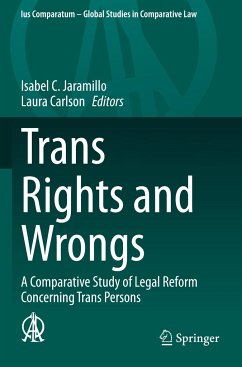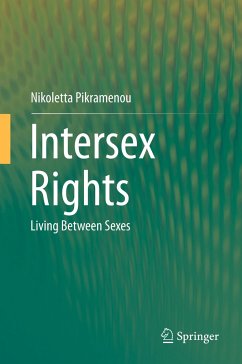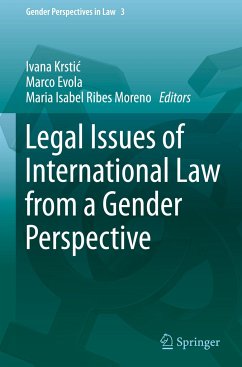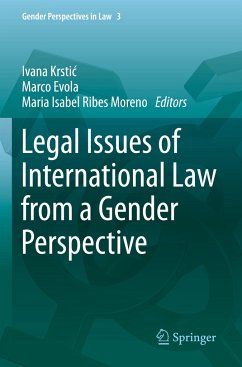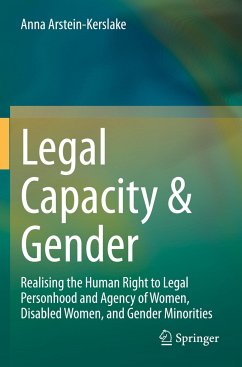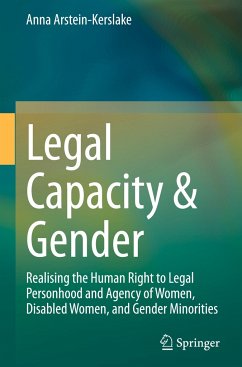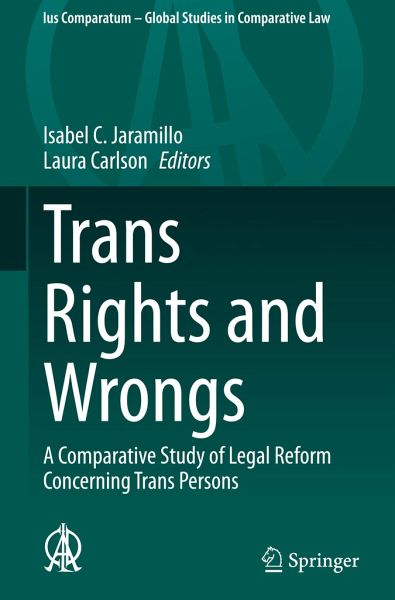
Trans Rights and Wrongs
A Comparative Study of Legal Reform Concerning Trans Persons
Herausgegeben: Jaramillo, Isabel C.; Carlson, Laura

PAYBACK Punkte
68 °P sammeln!
This book maps various national legal responses to gender mobility, including sex and name registration, access to gender modification interventions, and anti-discrimination protection (or lack thereof) and regulations. The importance of the underlying legislation and history is underlined in order to understand the law's functions concerning discrimination, exclusion, and violence, as well as the problematic nature of introducing biology into the regulation of human relations, and using it to justify pain and suffering. The respective chapters also highlight how various governmental authoriti...
This book maps various national legal responses to gender mobility, including sex and name registration, access to gender modification interventions, and anti-discrimination protection (or lack thereof) and regulations. The importance of the underlying legislation and history is underlined in order to understand the law's functions concerning discrimination, exclusion, and violence, as well as the problematic nature of introducing biology into the regulation of human relations, and using it to justify pain and suffering. The respective chapters also highlight how various governmental authorities, as well as civil society, have been integral in fostering or impeding the welfare of trans persons, from judges and legislators, to medical commissions and law students. A collective effort of scholars scattered around the globe, this book recognizes the international trend toward self-determination in sex classification and a generous guarantee of rights for individuals expressing diverse gender identities. The book advocates the dissemination of a model for the protection of rights that not only focuses on formal equality, but also addresses the administrative obstacles that trans persons face in their daily lives. In addition, it underscores the importance of courts in either advancing or obstructing the realization of individual rights.





